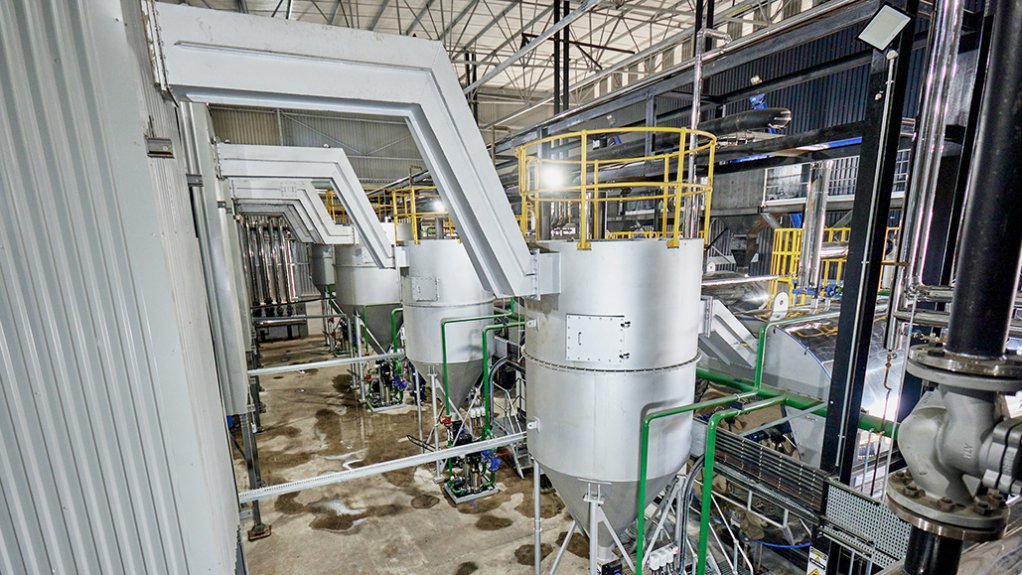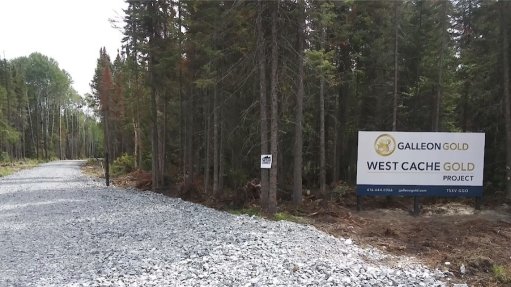AES boiler update project transforms local food production process
The replacement of 78-year-old boilers at a Western Cape food processing plant with four newly installed, locally manufactured chaingrate stoker-fired firetube package boilers has transformed the facility’s entire production process, says boiler operations and maintenance service provider Associated Energy Services (AES).
This turnkey project – one of the largest in the sector and region – involved updating the boiler house format, structure and technology, positioning the company to meet growing demand for affordable protein into the future.
AES projects director Gavin Evezard believes that the boilers were probably some of the oldest still operating in South Africa, prompting the new boiler manufacturer to place some of the parts in its industrial museum.
“Technology has completely changed to the point where it is almost impossible to relate to the world for which that equipment had been developed,” he admits.
In today’s era of innovation and sustainability, the new boilers represent significant improvements over their predecessors, equipped with the latest spiral tube technology, bigger surface areas and a secondary air system that improves operational efficiency.
The boilers, which were commissioned earlier this year, have total steaming capacity of 63 t/h (from and at 100 °C). In addition, the new technology includes emissions abatement plant to ensure less than 120 mg/Nm3 particulate emissions, an AES Remote Monitoring System, a de-aerator and hot well in addition to a submerged ash conveyor system, shaftless conveyor fuel handling system and storage bunker. The emission abatement plant is part local and part imported from a Portuguese supplier, while most of the ancillary plant was also manufactured locally.
Further to providing technical management and oversight of the client’s existing steam generation plant throughout the project, AES also completed the plant layout, selection, installation, commissioning and testing.
The project commenced in December 2022, with the new boilers arriving at the end of 2023. Once the foundation slab was cast for the placement of the equipment, the boiler house structure was built around it.
“The complexity of constructing both phases of the project in parallel was like choreographing a particularly intricate dance and presented some fairly unique challenges. The installation and commissioning of the boilers and ancillary equipment, as well as the boiler house itself represented many ‘moving parts’, all of which had to be managed in accordance with tight deadlines,” AES commercial director Dennis Williams remarks.
Full Steam Ahead
There were three key drivers behind this large investment, in addition to the age of the original boilers, shares AES.
The first was a switch from flue gas drying to steam drying to produce a better quality protein product. In the past, the company used the exhaust gases from the old boilers in the protein drying process.
The second was improving efficiency to increase production, and the third was to lower emissions in keeping with legislation, and to safeguard positive relationships with neighbouring communities; as well as the company’s own target of decreasing carbon emissions by 50% by 2030 to reach ‘carbon zero’ status by 2050.
To achieve these objectives, AES combined the new boilers with an advanced cyclone system.
“The more a business is future proofed from an environmental and emissions compliance perspective, the less issues it will have going forward, including with surrounding communities. This system delivers competitively on that critical requirement from a capex and operational perspective,” Williams explains.
In terms of fuel source selection, the company elected to use locally sourced, cost-effective coal. AES, which is fuel-agnostic, was able to optimise the energy efficiency thereof effectively.
Robust Results
To date, plant particulate emissions have been reduced by 42% – while the high-tech boilers and updated production process, coupled with plant upgrades and modernisation have improved overall efficiency by at least 15%.
In addition to these impressive operations and maintenance-related metrics, Evezard says one of the most rewarding highlights of the project was upskilling of the 14 boiler operators on site in the use of the new technology: “The ancillary systems and the old boiler house were manually intensive, and the fuel and ash systems were also manually driven. Now, much less manual intervention is required,” he points out.
Reflecting on the success of this challenging project, Evezard concludes: “Although it is very difficult to create a fully autonomous boiler system – especially one based on solid fuel firing – AES always seeks to optimise the way in which we operate, so that the operational staff can concentrate on the important things – the quality of the emissions, the set-up of the boiler and the required operational efficiencies.”
Williams believes that AES was awarded this extensive project owing to its innovative design and management approach, and substantial experience in implementing more than 40 complex outsourced energy contracts over more than 25 years.
“Our core business is energy plant operations and maintenance, so we know how to manage a project to ensure its success in the short-, medium- and long-term. We built this plant to run it, and that speaks to our overall project approach,” Evezard adds.
Article Enquiry
Email Article
Save Article
Feedback
To advertise email advertising@creamermedia.co.za or click here
Announcements
What's On
Subscribe to improve your user experience...
Option 1 (equivalent of R125 a month):
Receive a weekly copy of Creamer Media's Engineering News & Mining Weekly magazine
(print copy for those in South Africa and e-magazine for those outside of South Africa)
Receive daily email newsletters
Access to full search results
Access archive of magazine back copies
Access to Projects in Progress
Access to ONE Research Report of your choice in PDF format
Option 2 (equivalent of R375 a month):
All benefits from Option 1
PLUS
Access to Creamer Media's Research Channel Africa for ALL Research Reports, in PDF format, on various industrial and mining sectors
including Electricity; Water; Energy Transition; Hydrogen; Roads, Rail and Ports; Coal; Gold; Platinum; Battery Metals; etc.
Already a subscriber?
Forgotten your password?
Receive weekly copy of Creamer Media's Engineering News & Mining Weekly magazine (print copy for those in South Africa and e-magazine for those outside of South Africa)
➕
Recieve daily email newsletters
➕
Access to full search results
➕
Access archive of magazine back copies
➕
Access to Projects in Progress
➕
Access to ONE Research Report of your choice in PDF format
RESEARCH CHANNEL AFRICA
R4500 (equivalent of R375 a month)
SUBSCRIBEAll benefits from Option 1
➕
Access to Creamer Media's Research Channel Africa for ALL Research Reports on various industrial and mining sectors, in PDF format, including on:
Electricity
➕
Water
➕
Energy Transition
➕
Hydrogen
➕
Roads, Rail and Ports
➕
Coal
➕
Gold
➕
Platinum
➕
Battery Metals
➕
etc.
Receive all benefits from Option 1 or Option 2 delivered to numerous people at your company
➕
Multiple User names and Passwords for simultaneous log-ins
➕
Intranet integration access to all in your organisation





















